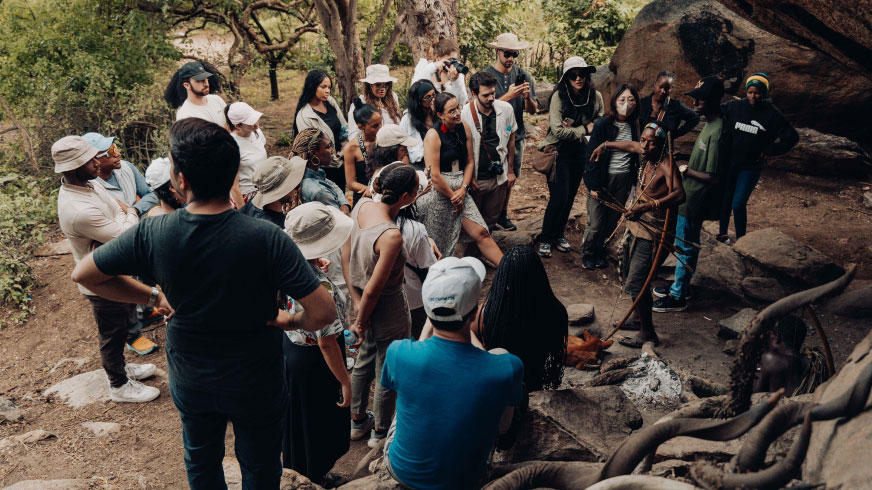Walking with the Hadzabe
Somewhere on the edges of Lake Eyasi, where the land opens into wide brush and silence stretches between acacia trees, you will find the Hadzabe. They do not live behind fences or under roofs with clocks ticking in the background. Instead, they live with the wind, with the fires they make by hand, and with an awareness of the land that few people in the modern world ever truly understand.
The Hadzabe are one of the last hunter-gatherer communities in East Africa. Their days begin not with screens or schedules, but with instinct. They wake with the light, listen for movement in the bush, and follow the signs nature gives them. Food is not stored in fridges. It is tracked, foraged, shared, and respected. Time is not managed. It is experienced.
When you travel with Be, you do not visit the Hadzabe to be entertained or to consume culture like an exhibit. You go to listen. You go to learn. And if you allow yourself to move slowly, you begin to see the beauty in the simplicity of their world.
We walk with them in the early morning. Not as tourists looking in, but as guests invited to observe. They teach us how to track a small animal just by its footprints in the dust. They show us how to gather tubers from the ground, and how to distinguish plants that heal from those that harm. No notebooks are used. No diagrams are drawn. Everything is shared through doing, watching, and passing on by memory.
What surprises most travelers is not how different the Hadzabe are. It is how centered and present they seem. In a world where so many of us are pulled in a dozen directions at once, there is something grounding about watching a person sit, stare into the fire, and say nothing at all — because nothing needs to be said.
There is also no script for these visits. Each interaction is different. Sometimes there is laughter. Sometimes long silence. Sometimes a child will come and place something in your hand with no explanation at all. These are not performances. They are moments. You are not led through a curated routine. You are simply allowed to be there.
Our role at Be is to prepare travelers not for a show, but for an encounter. We work closely with community partners who have spent years building trust with the Hadzabe. That trust matters. It means that the welcome we receive is real. And it reminds us that meaningful cultural travel must always be a two-way exchange, built on respect.
For some, the visit is disorienting. There are no markers of success. No walls hung with diplomas. No mention of what comes next week or next year. And yet, within a few hours, most people begin to feel a shift. The pace changes. The mind slows. A different kind of attention sets in. And often, something stays long after the visit ends.
We return from the experience with more questions than answers. That is a good thing. The Hadzabe do not live to prove a point or to be preserved like a photograph of the past. They are here. They are living. They are adapting in their own ways, quietly and without apology.
What they offer us, if we are open to it, is not just a story to tell. It is a reminder of what it means to truly be present, to depend on each other, and to find value in the day as it is — not as we wish it to be.
This is why we visit. And why we return.



